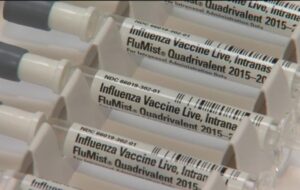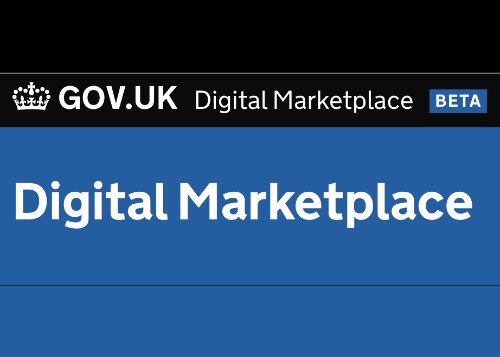The Best Parental Engagement Strategies for School Health
If you read the first part of our blog series, then you’ll know the best parental engagement strategies for school health can be hard to discern. After all, the ways to communicate with parents these days are varied. This is especially true with the advent of wide-spread mobile internet. Not only can you utilise traditional media and face-to-face communication, but, now, it is important to make the most of social media, and other online forms.
However, despite its importance, there is something of a lack of literature surrounding this crucial subject. Although many organisations cite the importance of parental engagement, not many are prepared to fund studies into best practices, especially in the post-COVID economy.
Because of this lack of developed study, parental engagement strategies for school health can be difficult to navigate. There are many, vastly different, pathways you can choose to follow, and they all have their own distinct strengths & weaknesses.
So, it can be difficult to know which is the best way to communicate. And, it’s important to remember that:
A Quick Disclaimer
We cannot provide a “one size fits all” strategy that will effectively encompass engagement in all localities. There is no all-around “best” parental engagement strategy in school health.
Different areas will have their own specific challenges to address – these will be born from the unique challenges that families face in that locality. As an example, an area with high levels of digital poverty would see less benefit from a digital engagement campaign. Areas with low levels of adult literacy will not see the biggest benefit from literature based campaigns.
But, we are here to help. This short post on the best parental engagement strategies in school health will talk you through the most effective strategies for keeping parents engaged, and children healthy & happy! And, we asked you on Twitter to weigh in and provide some examples of great parental engagement strategies. You can find some quoted tweets, below!
Parental Engagement Strategies for School Health - A List
There are a whole range of ways you can choose to engage with parents. From the traditional, to the more modern, there are options available for every skill-mix and budget.

Face-to-Face
- Parents’ evenings – one of the easiest face-to-face means of engagement; parents will already be in school, so does not require any additional scheduling/arranging. However, health-related topics may get pushed to one side to allow appropriate time to discuss academic subjects fully.
- Coffee mornings – informal & fun, a coffee morning can be a great way to engage parents. While you’re having a cuppa and some cake, you can distribute contact info or literature. Or, you can use it solely as a social occasion, to establish a rapport with local parents.
- Catchup clinics – catchup clinics are a necessity for ensuring no child left behind. However, if a child is missing multiple activities, it might be cause for concern. Luckily, you will have likely invited the child to a catchup clinic already, simply to administer the missed intervention. However, remember they can also be a great opportunity to engage with parents!
- Parent groups – a bit more specifically designed for purpose. Parent groups can be a great place for parental engagement, as they empower parents to feel part of a community of similar individuals. This may encourage more honesty and trust in the group, and facilitate better discussions.
Remote
- Social Media – socials are a criminally underused tool in school health. Most parents, and schools, have access to some form of social media, which they will check as part of their daily routine. So, use the right channels and you can impart important health info every day!
- Phone calls – if there is a group, or a specific parent or child, that you are concerned about, phone calls can be the perfect tool. They allow one-to-one discussions at length, and from the privacy of one’s own home. This can be crucial if discussing a sensitive issue (for example, bedwetting)
- Emails – email is another great strategy for contacting parents, especially if you are looking to disseminate large amounts of text-based info to a large group of people. There are limitations (text-based communications often leave leeway for person interpretation!) but email is both inexpensive and quick, as well as being intuitive in a way that socials aren’t, for many.
- Letters, posters, and other paper resources – although not quite as effective as some of the other school health parental engagement strategies presented, paper-based communications do have their benefits. They do not rely on parents having access to digital technology, for one. However, they can be both expensive and time-consuming to create and distribute.
- ParentPortal? – if you’re already a SchoolScreener client, chances are you have heard of our ParentPortal. It allows providers to open a two-way channel of communication, directly with parents in the community.
Social Media: the Best Parental Engagement Strategy for School Health?
Social media is the most obvious candidate when discussing the best parental engagement strategies in school health.
It’s an easy, often free, two-way tool for communicating with parents. However, many nurses and their respective Trusts seem quite fearful, or unfamiliar with using, social media, especially in a professional capacity. However, it is absolutely essential for establishing a regular dialogue with parents in the local community.
Whilst print campaigns, coffee mornings, or basically any other parental engagement strategy, requires extensive time and cost implications, social media requires none of this. Posts can take just seconds to write, can be posted instantly without cost, and can reach hundreds – or even thousands – of parents. And, what’s more, with many social-media management tools available, you can schedule a week or month’s worth of posts all at one time.
If you want support in delivering an effective social media campaign, to engage and involve parents, get in touch with a member of our team to see how SchoolScreener can help.

Final Checklist: The Best Parental Engagement Strategies for School Health
At first glance, parental engagement strategies in school health can appear to be a complex beast. But, with a considered approach, you can plan & deliver a targetted strategy, that speaks to the specific strengths of your locality.
To ensure you get the most out of parental engagement in your local area, remember:
- Utilise a range of forms of communication, to help reach parents who may suffer from digital poverty, illiteracy etc.
- Make sure you use social media to the fullest!
- There is no “one-size fits-all” strategy for parental engagement
- Be supportive, and remember that many parents may not trust health services












